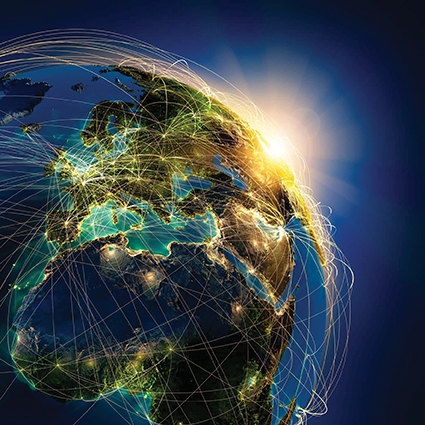The Economic Interconnectedness of the South Caucasus
Op-Ed
Looking at the history of Russia over the past centuries, one constant peculiarity of the country’s foreign policy has been ideology. Under the Romanovs, Orthodox Christianity was an important instrument in exerting Russian influence over Christian peoples of the Balkans and the South Caucasus. When the Russian Revolution happened almost 101 years ago, the religious aspect of foreign policy was gradually replaced by communism. However, after the breakup of the Soviet Union in 1991, the Russian political elite was no longer able to provide an important ideological back up to the Kremlin’s foreign policy. Not until the late 1990s, when the so-called Eurasianists (those who believe that Russia is neither in Europe nor in Asia, but in order to successfully compete with western powers in the Middle East, it needs Teheran and Ankara) appeared. Although the Russian government did not follow the Eurasianists’ policies officially, and even broke with their most vocal representative Alexandr Dugin, nowadays we see that Moscow does what was prescribed in closer cooperation with Turkey and Iran.
I have written in the past that it is in all three countries’ common interests to cooperate in obstructing western military encroachment in the South Caucasus and the Middle East. The three countries have their own disagreements too, but this triangle could, quite surprisingly, actually lead to a certain stability in the South Caucasus, a region ridden with perennial ethnic conflicts in Abkhazia, South Ossetia and Nagorno Karabakh.
A Positive Picture for the South Caucasus
A region as complex as the South Caucasus could in fact become a land where competing powers can balance each other. One of the recipes for this is economic interconnectedness. Turkey-Georgia-Azerbaijan already enjoy significant cooperation in the economic realm, with new railways and pipelines being built, while Iran, Russia and Azerbaijan are developing the North-South Economic Corridor which will potentially enable reconnecting Russian railways with the Iranian.
Apart from the immediate neighborhood of the South Caucasus, big stakes are made by such large powers as China, with its Belt and Road Initiative. The very fact that the South Caucasus is a convenient transit passage could make several major powers regard the region as more or less free of geopolitical struggle.
Economic interconnectedness through the creation of supply chains (via new railways, sea ports such as Anaklia, and pipelines) will move economic prosperity to the forefront and could replace geopolitics as a primary driver of cooperation between the countries. Indeed, economic interconnectedness can even resolve the most difficult problems such as the seemingly unresolvable Abkhazia, South Ossetia, and Nagorno Karabakh conflicts.
Economic interconnectedness through supply chains eventually breaks down large Man-made military barriers which are, for instance, created between South Ossetia and the rest of Georgia. There are already some signs that economic progress tramples geopolitics: Russia and Georgia are close to opening economic corridors, with Tbilisi’s control, through Abkhazia and South Ossetia.
In the modern world, where economic competition is intense, and the globe is becoming an increasingly interconnected place, regions left out are guaranteed eventual backwardness.
This brings us back to Russia, which has been experiencing important developments in its foreign policy – closer cooperation with Turkey and Iran. Georgia should adjust its foreign policy to new scenarios and one of them could be to play a transit role as much as possible in order to reduce geopolitical competition.
Emil Avdaliani












